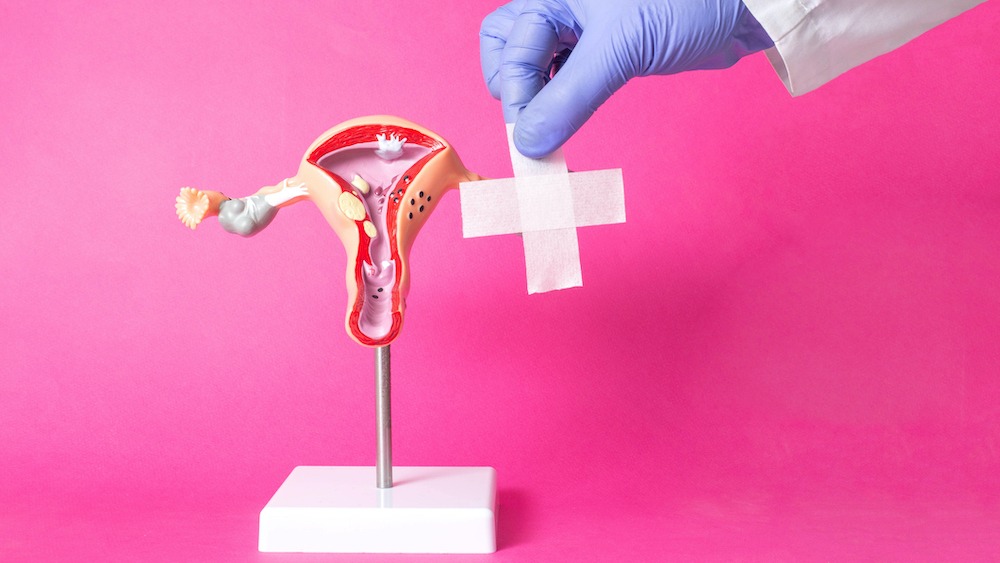Endometriosis may be caused by a common gut bacteria, small study suggests
New research offers a possible link between endometriosis and a common bacteria that can be treated with antibiotics.

Get the world’s most fascinating discoveries delivered straight to your inbox.
You are now subscribed
Your newsletter sign-up was successful
Want to add more newsletters?
Join the club
Get full access to premium articles, exclusive features and a growing list of member rewards.
A bacteria commonly found in the mouth and gut could be what triggers endometriosis, a small new study suggests.
And the early research hints that antibiotics could combat the painful and chronic disease that causes tissues lining the uterus to grow outside of it.
Scientists in Japan discovered the link while studying vaginal swab samples taken from 155 women, of which 79 had endometriosis and 76 did not, according to a study published Wednesday (June 14) in the journal Science Translational Medicine.
Nearly two-thirds of the women with endometriosis also tested positive for Fusobacterium, a genus of bacteria that can contribute to gum disease and other illnesses of the mouth and gut, in their uterine lining. Only 1 in 10 of the healthy women did, according to a statement.
"Previously, nobody thought that endometriosis came from a bacterial infection, so this is a very new idea," co-author Yutaka Kondo, a cancer biologist from Nagoya University Graduate School of Medicine in Japan, told The Washington Post.
Related: Why is endometriosis so hard to diagnose?
To demonstrate that Fusobacterium was the culprit, the researchers infected mice with the bacteria, then examined the uterine lining. The mice developed lesions associated with endometriosis. Once scientists gave the mice antibiotics, they "saw improved lesion formation" with the lesions decreasing in both size and number, according to the statement.
Get the world’s most fascinating discoveries delivered straight to your inbox.
"Eradication of this bacterium by antibiotic treatment could be an approach to treat endometriosis for women who are positive for Fusobacteria infection, and such women could be easily identified by vaginal swab or uterus swab," Kondo said in the statement.
However, Kondo emphasized that more research needs to be conducted before "treatments can be derived from this new study," according to The Washington Post.
Endometriosis is a painful and debilitating disease that, in severe cases, can cause infertility. It affects approximately 10% of women and girls of reproductive age around the world, according to the World Health Organization. That equates to about 11% of American women between the ages of 15 and 44, according to the Office of the Assistant Secretary for Health.
"Medicine puts a Band-Aid on it," Dr. Allison K. Rodgers, a reproductive endocrinologist at the Fertility Centers of Illinois who was not involved with the study, told The Washington Post. "I can give you medicine to stop your periods; I can give you birth control pills; I can give you pain meds; I can cut it out with surgery. But we haven't figured out the why, and once we start figuring out the why, we'll be able to design targeted approaches for treatment."
Right now the only treatments for endometriosis are hormonal medications, such as birth control pills, or surgery to remove the reproductive organs, according to the Mayo Clinic.
The Department of Obstetrics and Gynecology at Nagoya University Hospital is currently conducting clinical trials of the antibiotic treatment on patients, according to the statement.
Jennifer Nalewicki is former Live Science staff writer and Salt Lake City-based journalist whose work has been featured in The New York Times, Smithsonian Magazine, Scientific American, Popular Mechanics and more. She covers several science topics from planet Earth to paleontology and archaeology to health and culture. Prior to freelancing, Jennifer held an Editor role at Time Inc. Jennifer has a bachelor's degree in Journalism from The University of Texas at Austin.
 Live Science Plus
Live Science Plus










